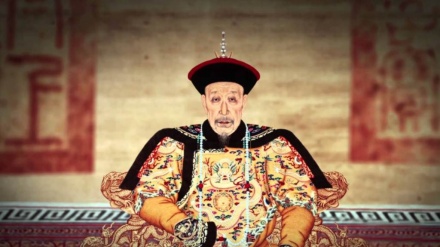Iranian stories and fables (137)
First we have an analysis on the precious collection of the ‘One Thousand and One Nights’ stories and then we take you to the land of stories. In this episode we continue the rest of the story of the Bogus Caliph (Khalife-ye Qollabi in Farsi) chosen from the ‘One Thousand and One Nights’.
Some of the names in ‘One Thousand and One Nights’ stories are symbolic. These names have unfortunately been ignored by the translator. In the stories which contain symbolic names, the ethical result of the story is dependent on the main character; that is, the hero of the story. For example, one of the stories of the One Thousand and One Nights is about the love of Qanem, son of Ayyub. Qanem, the hero of the story, is pious, faithful and devoted to his religious duties. He realizes that a woman in Haroun al- Rashid's palace loves him. So, by the king's command he takes charge of protecting his beloved.
This is while Qanem tries to restrain his carnal desires. What we should take into consideration is that Qanem is the son of Ayyub. Ayyub (Prophet Job) in Islam and Christianity is the symbol of patience, faithfulness and tolerance of pain and sorrow. Even in the Iranian culture, the character Ayyub is the symbol of patience. Thus the writer of the story by putting the name Ayyub on Qanem’s father wanted to refer to the real Ayyub (Job) mentioned in Islam and Christianity.
We said that once upon a time there was a caliph called Haroun al-Rashid who left his palace along with his vizier, Jafar Barmaki, and a swordsman to examine the affairs in the city under his rule. They all took off their royal clothes and dressed like ordinary citizens to stay incognito. They went on and on till they reached a river bank where they spotted a ship. The people said it belonged to the caliph. This shocked the real caliph and his companions. Thus, they decided to come back the same night to see whom the ship belonged to. But the following night when the trio sailed to the river along with the boatman, the soldiers of the bogus caliph arrested them, but as the trio introduced themselves as traders, they let them in the palace and the bogus caliph served them with different foods and drinks. While they were in the palace they were witness to the fact that the bogus caliph for several times tore up his royal clothes as he heard musicians playing and wore new clothes and when Haroun al-Rashid asked him the reason he answered that it was because of the property he had gained. He then said that he had recognized Haroun al-Rashid, the caliph, his vizier Ja'far Barmaki and his swordsman Masroor. The bogus caliph then began recounting the story of his life. He told them that he had married Ja'far's sister Donya and both loved each other very much. However once he left home to play music and sing for a stranger, Donya came back home and thought that her husband was disloyal, so she punished Mohammad Ali and ordered him to leave her. From then on Mohammad Ali sold all his properties, bought a palace and began living a luxurious life thinking that rich people can do whatever they wish.
Now we continue the rest of the story.
When the bogus caliph finished his story, he burst into tears and said:
"I cannot forget the memory of my dear wife Donya and I still love her."
Haroun al- Rashid said:
"Now I know you are not guilty. I ask God to help you young man."
Then he along with his vizier and swordsman went back to the palace.
The night after Haroun al- Rashid wore his real clothes and told his vizier:
"Ja'far, bring the bogus caliph here."
Ja'far Barmaki went to Mohammad Ali's palace. The poor young man thought that the caliph wanted to punish him so he said to himself:
"I deserve punishment. I sailed River Tigris for a year and scared people."
Mohammad Ali worriedly entered the palace and bowed to the caliph. The caliph smiled and said:
"Sit next to me and once more tell me your account which I think was strange and interesting to hear."
Then Mohammad Ali said:
"I cannot talk as I know I am guilty and have to be punished."
Then the caliph said:
"Calm down. I have forgiven you. I just know that you have endured all the hardships for your wife."
Then Mohammad Ali told his account once more.
After a few minutes the vizier came back with his sister Donya.
Pointing to Mohammad Ali, Haroun al- Rashid asked Donya:
"Do you know this man, lady?"
Donya denied.
Then the caliph said:
"O chaste lady! He is the man you lashed and threw away from your house."
He is not guilty. I know his real story."
Donya said:
"We have nothing common. I don't want to be with him again."
However Haroun al- Rashid said:
"I know that you two still love each other. Let me pronounce you as man and wife again."
Donya who still loved Mohammad Ali agreed and she became Mohammad Ali's wife again and they lived happily ever after.
That was just a story and in reality Haroun al-Rashid was a very cruel king and murdered tens of thousands of innocent people in the vast Islamic territory. The truth is that his very government was illegal and illegitimate as he and his ancestors had usurped the divine caliphate from the rightful and legitimate rulers, i.e. the progeny of the Prophet of Islam.
AE/RM/ME


